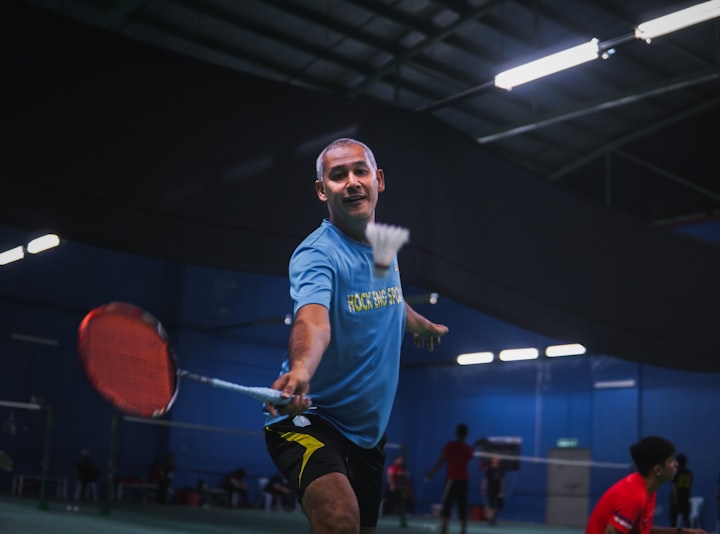AI In Sports: Improving Performance and Analysis
Improving Performance & Analysis in Sports through AI

Introduction
In recent years, the integration of artificial intelligence (AI) in sports has revolutionized the way athletes train, compete, and how games are analyzed. AI technology offers cutting-edge solutions that enhance performance, provide valuable insights, and optimize strategies for both individual players and entire teams. This article explores the various applications of AI in the sports industry, highlighting its role in improving performance and analysis.
1. AI-Driven Performance Tracking
1.1 Wearable Technology and Biometric Data
AI-powered wearable devices have become a game-changer in sports. Athletes can now monitor vital biometric data such as heart rate, body temperature, and even sleep patterns in real-time. This data provides valuable insights into an athlete's physical condition and helps in identifying areas that need improvement.
1.2 Injury Prevention
With AI, coaches and medical staff can predict and prevent injuries by analyzing an athlete's movement patterns and performance data. By identifying potential risk factors, personalized training programs can be created to minimize the chances of injuries and prolong an athlete's career.
2. AI in Game Strategy
2.1 Opponent Analysis
AI algorithms can process vast amounts of data from previous games, scouting reports, and player statistics. Coaches can use this information to devise effective game strategies, exploit opponents' weaknesses, and make data-driven decisions during matches.
2.2 Real-Time Analysis
During live games, AI-powered systems can analyze player movements, ball trajectories, and team formations in real-time. This instant analysis allows coaches to make quick adjustments and substitutions, ultimately influencing the game's outcome.
3. Virtual Training and Simulation
3.1 Virtual Reality (VR) Training
AI-driven VR simulations offer athletes a unique training experience. They can practice in virtual environments that mimic real-game situations, helping them enhance their skills, decision-making abilities, and spatial awareness.
3.2 Performance Visualization
AI can process training data and generate visualizations to demonstrate an athlete's progress and areas that require improvement. These visual aids help players and coaches better understand the data and set clear goals for improvement.
4. Fan Engagement and Personalized Content
4.1 Personalized Viewing Experience
AI algorithms analyze viewer preferences, allowing sports platforms to deliver personalized content based on an individual's interests. This enhances the overall viewing experience and keeps fans engaged.
4.2 AI-Generated Commentaries
AI-generated commentaries provide real-time analysis and insights during games, catering to diverse audiences with various levels of sports knowledge.
5. AI Referees and Officiating
5.1 Video Assistant Referee (VAR)
AI-powered VAR systems have been introduced to reduce human errors in crucial decisions. They analyze video footage to assist referees in making accurate calls on controversial incidents during matches.
5.2 Officiating Analysis
AI can analyze referee performance and decision-making, leading to better training programs for officials and improved consistency in their rulings.
Conclusion
The integration of AI in sports has transformed the industry, benefitting athletes, coaches, and fans alike. From optimizing performance to providing advanced data analysis, AI has proven to be a game-changer. As the technology continues to evolve, we can expect even more exciting applications that will further revolutionize the way sports are played, analyzed, and enjoyed.
FAQs
What are AI-powered wearables in sports?
AI-powered wearables are devices that athletes wear during training and games to track biometric data, helping them monitor their physical condition and performance in real-time.
How does AI prevent injuries in sports?
AI analyzes an athlete's movement patterns and performance data to identify potential risk factors and create personalized training programs that reduce the chances of injuries.
Can AI improve fan engagement in sports?
Yes, AI enables personalized content delivery and AI-generated commentaries, enhancing the viewing experience and keeping fans engaged.
What is Video Assistant Referee (VAR) in sports?
VAR is an AI-powered system that assists referees in making accurate decisions on controversial incidents during games by analyzing video footage.
How will AI continue to impact the sports industry in the future?
AI will likely introduce more advanced performance tracking systems, improve game strategies, and further enhance the overall fan experience in sports.
About the Creator
Hunza Abbas
I'm a multi-faceted digital enthusiast—a YouTuber, blogger, web developer, and writer. From creating engaging videos and captivating blog posts to crafting interactive websites and exploring emerging technologies.






Comments
There are no comments for this story
Be the first to respond and start the conversation.